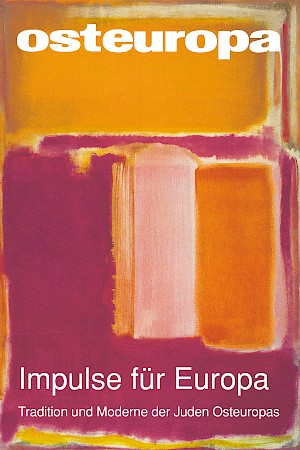The Jews and the Cheka
Myths, Numbers, and People
Deutsche Fassung
Abstract
To this day, the antisemitic topos of “Judeo-Bolshevism” haunts political arguments. Paradoxically, after the October Revolution, mostly Jewish voices expressed shock at the rise of Jews in the Soviet state apparatus. That there did in fact exist a kind of elective affinity between Jews and the new state in the first years after the revolution does not go back to ideology, as is often implied. The social structure was decisive: The Bolsheviks needed officials who were literate, and the Jews had to see to their livelihood between 1918 and 1921, when private enterprise was outlawed. It is also wrong to say the share of Jews in the secret police was especially high in these years, and that the Jewish contingent exacted revenge on its former tormenters. The statistics on perpetrators and victims take the wind out of such assertions.
(Osteuropa 8-10/2008, pp. 111–130)



